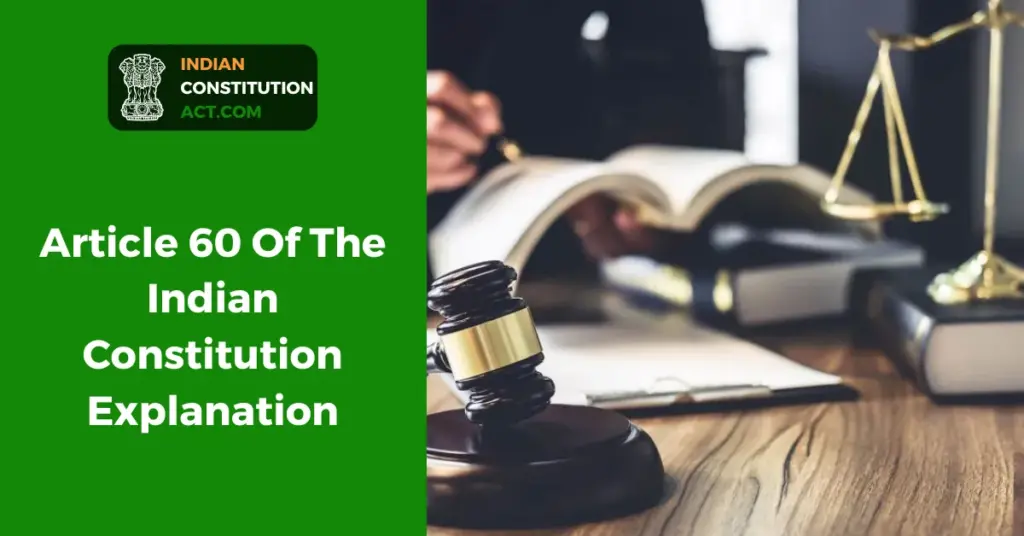As you all know the Indian Constitution is divided into Articles and Articles are divided into 22 Chapters. The President’s pledge is a promise to support the Constitution Of India. It shows the President’s faithfulness to the Constitution and their duty to protect its values. In Article 60 of the Indian Constitution, the necessary information regarding the President’s oath is stated. It tells why the President must take the oath and what to say while taking the oath. Let’s read the Article 60 definition below:
Table of Contents
What Is Article 60 Of The Indian Constitution?
Article 60 of the Indian Constitution states: “Before entering upon his office, the President shall make and subscribe in the presence of the Chief Justice of India, or in his absence, the senior-most Judge of the Supreme Court available, an oath or affirmation in the following form, that is to say:
‘I, [name], do swear in the name of God/solemnly affirm that I will faithfully execute the office of President (or discharge the functions of the President) of India and will to the best of my ability preserve, protect and defend the Constitution and the law and that I will devote myself to the service and well-being of the people of India.'”
Article 60 Of The Indian Constitution Explanation

Article 60 tells what oath the person who becomes the President should take and in front of whom it is necessary to take it. The first thing that is mentioned in Article 60 is that whoever assumes the post of President has to take an oath a day before coming to office. That oath will be taken in the presence of the Chief Justice of India and if he is not available then it will be taken in front of the most senior judge of the Supreme Court, available.
The President’s oath is very important in India. It is a serious promise to follow the Constitution, protect people’s rights, and do their job well. By taking this oath, the President agrees that the Constitution is the highest law and promises to keep it sacred. This means the President will follow the rules and support democracy, justice, and equality.
Also read: What Section 21 Of IPC Explains: Check All Clauses
How The President Can Be Discharged
The President has a lot of power but it is only for a limited time. Elections are held every 5 years to remain the President. If you lose the next election, you will be removed from the post. But apart from this, there are many other reasons why the President may have to step down from the post.
- The president can be removed by impeachment
- Life is unpredictable, we do not know when we will die and when not. If for some reason, the President dies, then someone else will take his place.
- If the President wishes to resign of his own free will then he can resign from the post of President
- The president can also be removed by the Supreme Court of India. We hope you have understood Article 60 of the Indian Constitution, Part 1st, and Chapter 5th.
